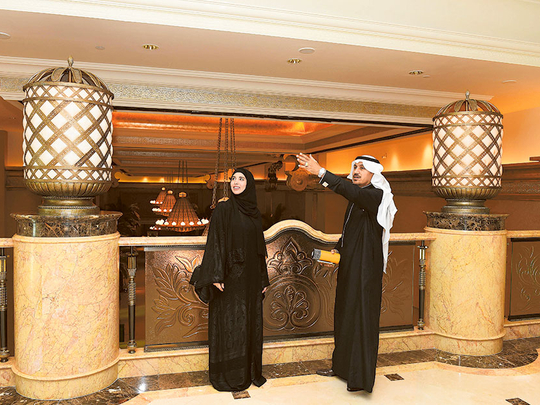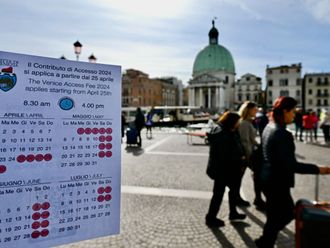
Abu Dhabi: As Muslims in the region make plans to celebrate Eid this coming weekend, hotels in the UAE are bracing for a busy period, with some even expecting 100 per cent occupancy rates.
While there have not been confirmations about when the first day of Eid is, it is expected to fall on either Friday or Saturday. This has not stopped residents in the Middle East from booking hotel rooms, though, with the hike in demand putting upward pressure on prices.
Eid Al Fitr is a religious holiday during which Muslims gather with friends and family to mark the end of fasting in Ramadan.
Dubai-based Rotana Hotels, which has presence across the UAE, said it expected to see an increase in the average length of stay for those booking during the Eid Al Fitr holiday.
In Abu Dhabi, average length of stay has long been one of the hospitality sector’s main challenges throughout the year, having just fallen below three nights — a number that the Tourism and Culture Authority is trying to raise. However, the Eid holiday appears to be an exception.
“The coming Eid Al Fitr is expected to bring cheer to our 34 hotels in the UAE as the peak season returns after Ramadan. The Emirates will again play host to thousands of visitors from the GCC and other parts of the globe and most of our hotels are already witnessing high occupancy, and are likely to achieve 100 per cent occupancy,” said Guy Hutchinson, chief operating officer at Rotana Hotels.
In an emailed statement to Gulf News, Hutchinson said he expected average stay to be between five and seven nights, and most guests to come from the UAE and other GCC countries — mainly Saudi Arabia, Qatar, and Oman.
Similarly, Accor Hotels, which is based in France and has locations in the UAE, said it was looking to achieve 80 to 95 per cent occupancy for hotels in Abu Dhabi, Dubai, and Al Ain, on par with performance last year.
“With still some available rooms in most of our hotels, the bookings this year are a bit slow. Nevertheless, the period shall fill up. The new hotels that opened in 2015 are pressuring the choice for the clients,” said Olivier Hick, Accor’s vice president of operations in the Gulf and Levant countries.
He added that the abundance of supply could also impact room rates, and food and beverage revenue, which he did not expect to grow compared to the same time last year.
“The price war continues, and therefore, we are probably going to end less 10 per cent compared to last year on the average room rate,” Hick said.
Marriott Hotels also agreed on the impact of growing room supply on average rates, but said it expected high occupancy, following the quiet Ramadan period. It did not, however, specify predicted occupancy rates.
“Room rates are generally higher over Eid Al Fitr. However, demand and supply dictate how aggressive we can be with driving rate over this period, and we are keen to always show value for our guests. We are not expecting to drive significant average daily rate premiums due to the increased supply in the market and the competitive rates that are available across the market,” Marriott said in a statement.
Regarding food and beverage revenue, the hotel chain said that it expected “incremental impact on their performance” from the additional occupancy. However, the GCC and Middle Eastern guests markets that drive demand in Eid have a tendency to eat outside the hotels, Marriott said.
Meanwhile, analysts said that the highest occupancy rates (around 90-100 per cent) are likely to be recorded in hotels and hotel apartments that are close to shopping malls.
Rashid Abu Bakr, associate director at TRI Hospitality Consulting, said that the holiday was peak season for GCC visitation to Dubai, with Saudi visitors accounting for over half the total guests.
“We expect notable growth in hotel occupancy in Dubai in July over the same period last year due to the impact of Eid Al Fitr holidays, potentially between 70-75 per cent (compared to 50.3 per cent last July). However, given the impact of the low demand during the first half of the month due to Ramadan and summer, occupancy level for the month is still likely to be significantly below the annual average,” he said.
Abu Bakr added that he expected rates to rise, as most hotels charge 100-200 per cent higher rates during peak seasons.
“For the month of July, however, we expect the [average room rate] to see limited (less than 10 per cent) growth compared to last year due to the low season during the first half of the month and the growth in rooms supply,” he said.
Despite the hike in rates and occupancy, Eid holiday alone is not expected to make up for the quiet period of Ramadan, according to Chiheb Bin Mahmoud, head of hotels and hospitality at JLL.
— With additional inputs from Sarah Algethami, Staff Reporter in Dubai.












